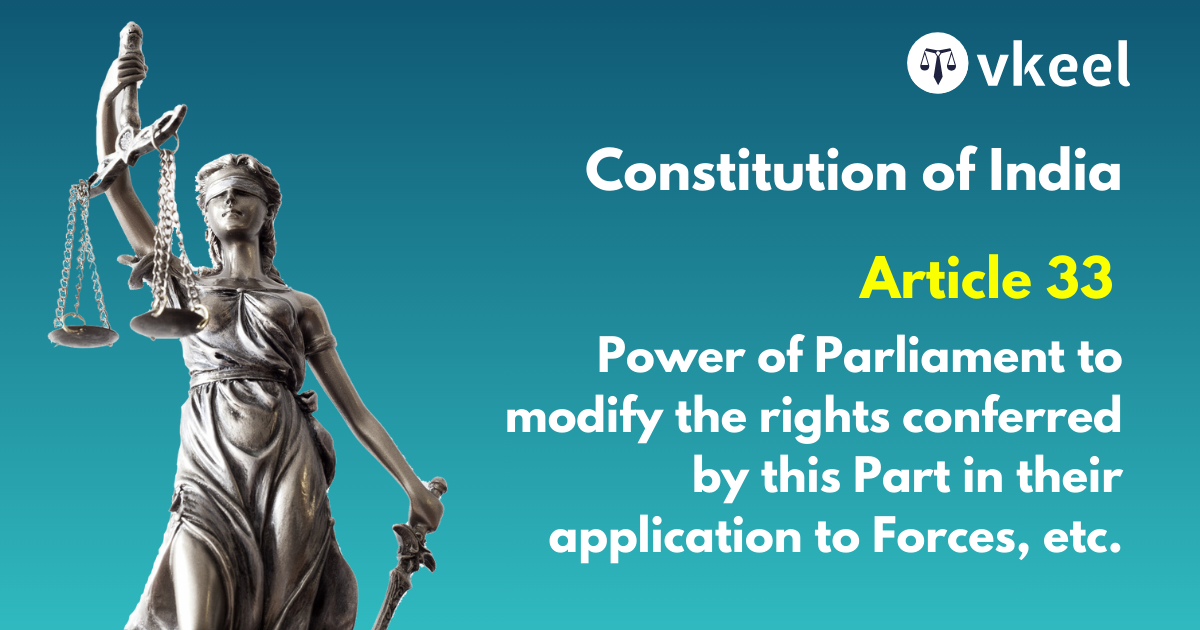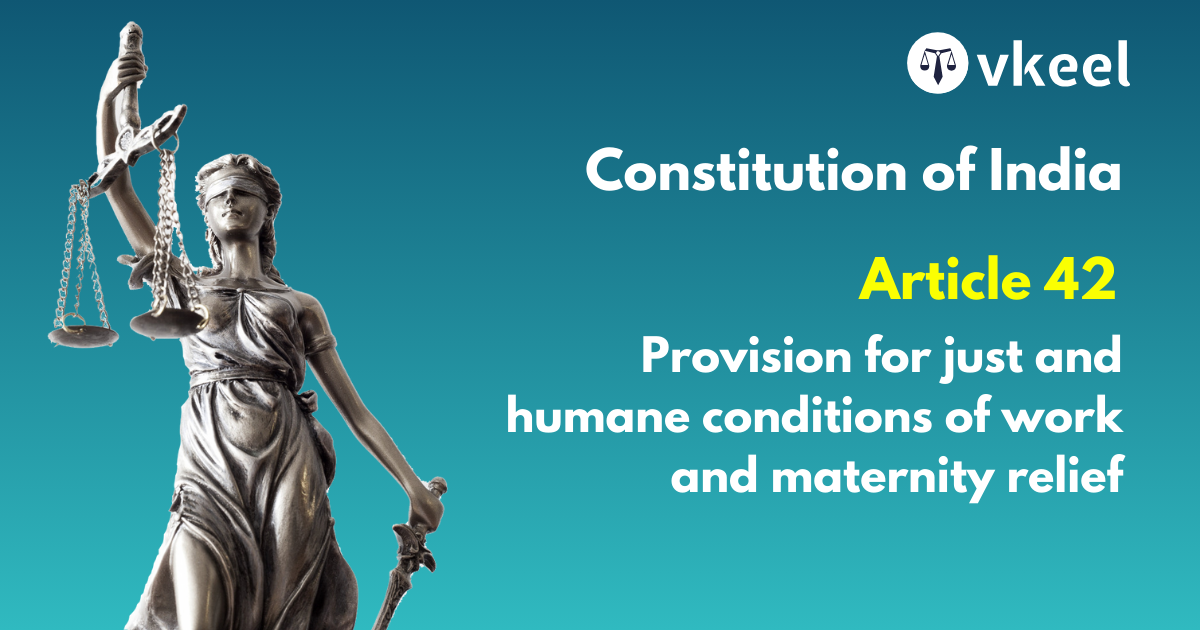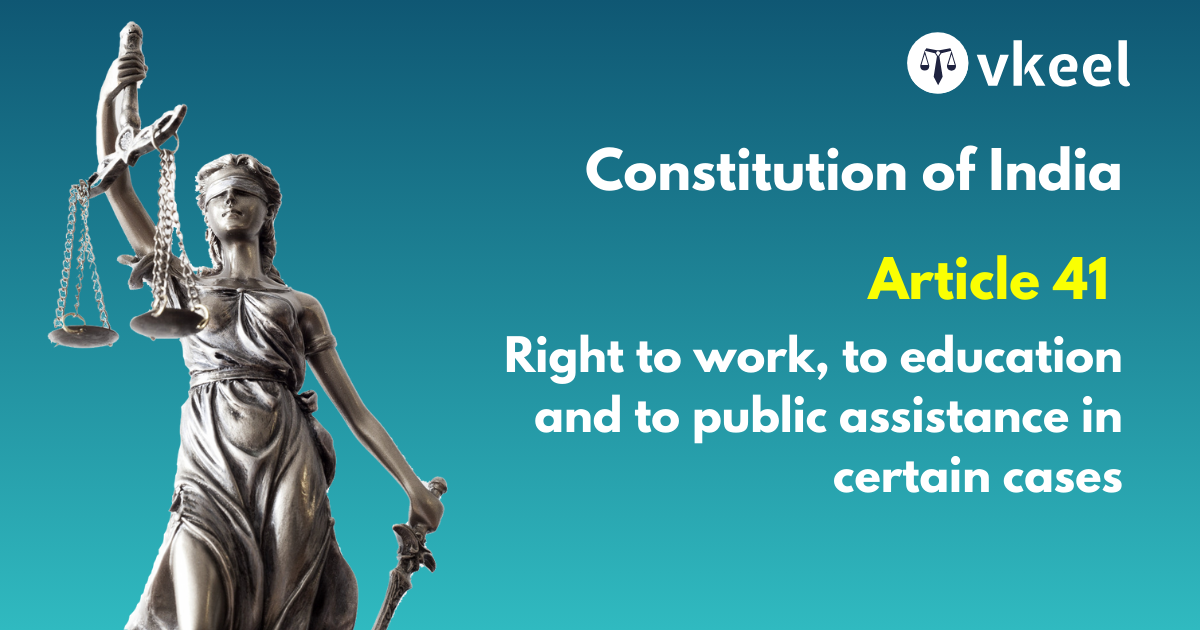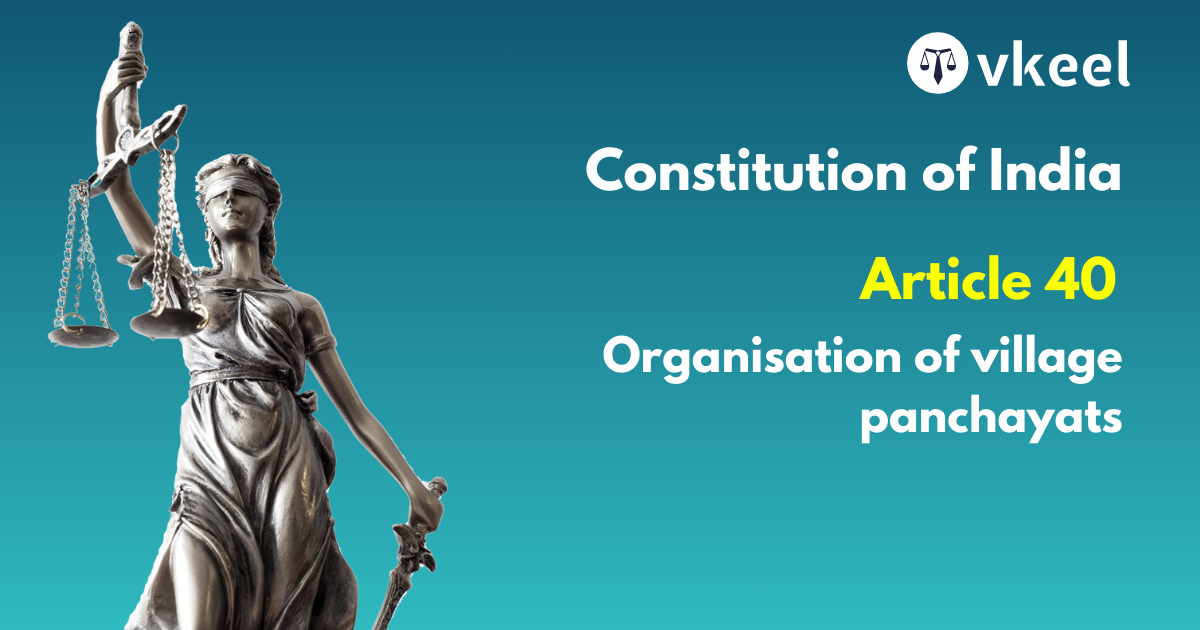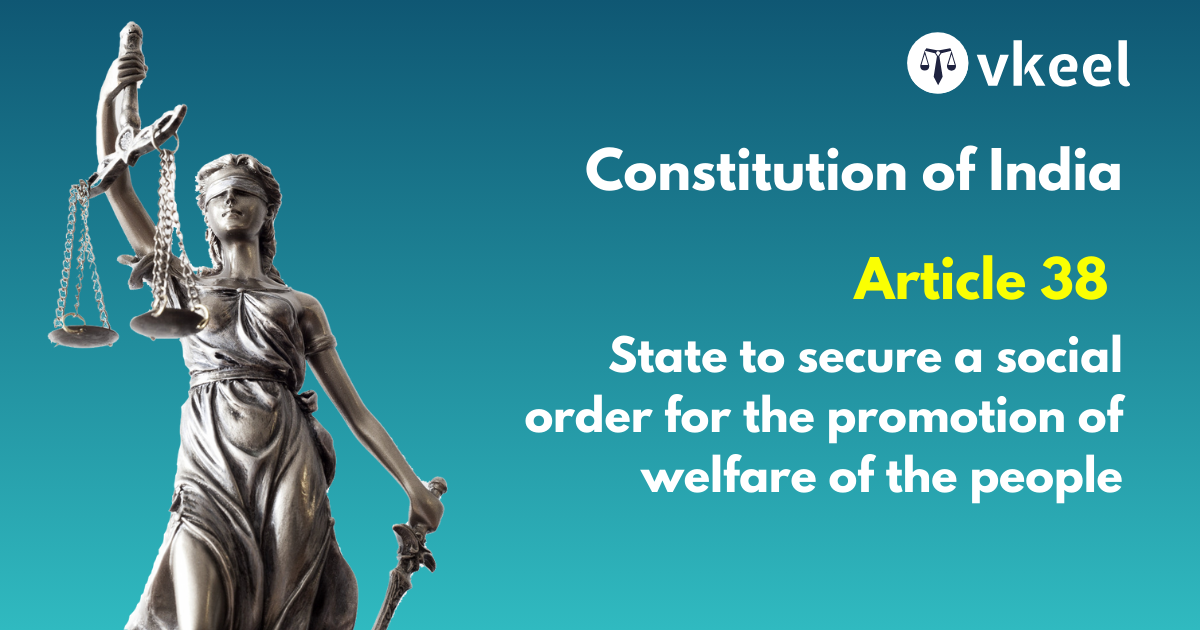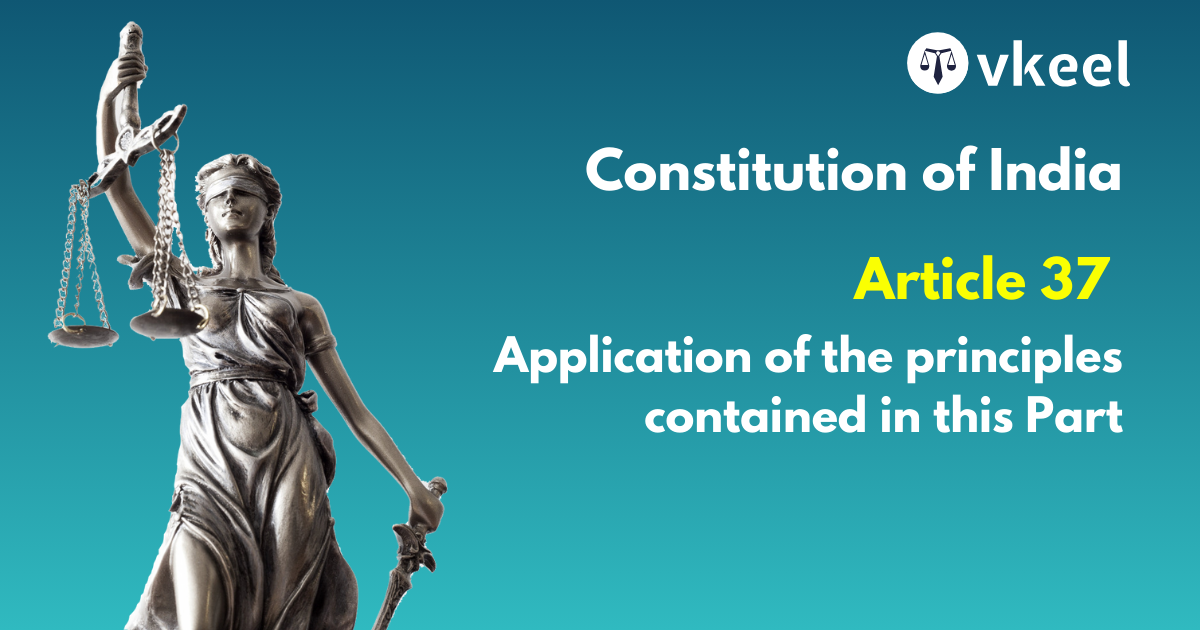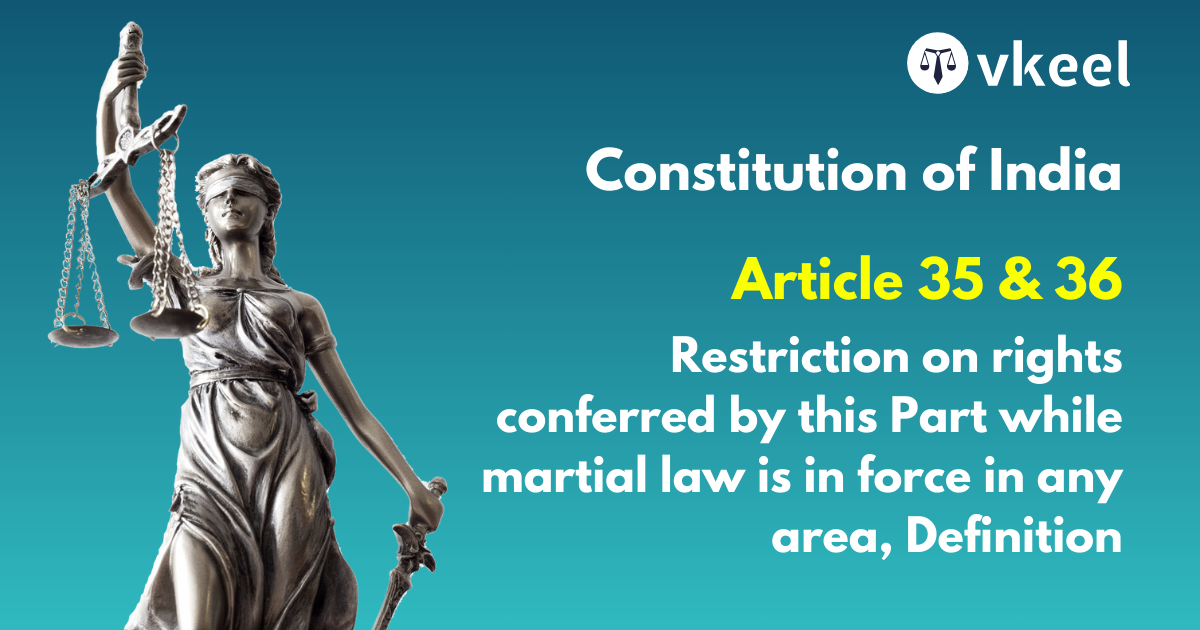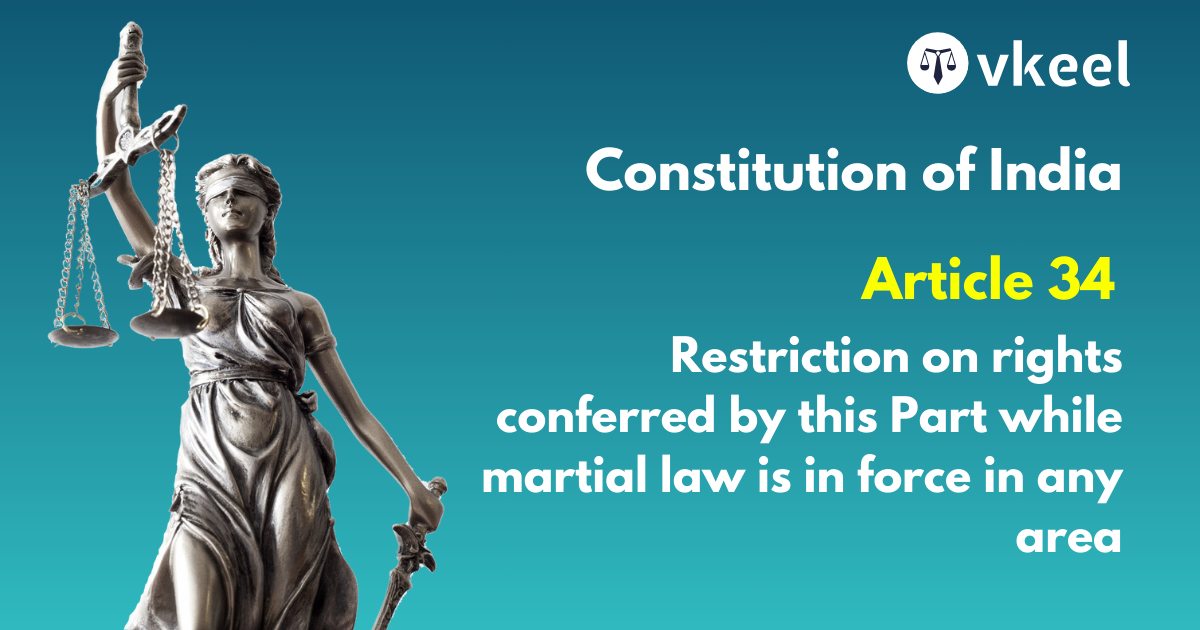Article 33 of the Constitution of India
By Joy Puri
Introduction
The article 33 of the Constitution of India empowers the Parliament with the wide authority to modify the application of Fundamental Rights to the member of armed forces, para military forces, police forces, intelligence agencies and analogous services.
The basic rationale behind the existence of the Article 33 of the Constitution of India is to maintain order, discipline, national security in the country.
Article 33 of the Constitution of India
Power of Parliament to modify the rights conferred by this Part in their application to Forces, etc.
Parliament may, by law, determine to what extent any of the rights conferred by this Part shall, in their application to,-
(a) the members of the Armed Forces; or
(b) the members of the Forces charged with the maintenance of public order; or
(c) persons employed in any bureau or other organisation established by the State for purposes of intelligence or counter intelligence; or
(d) persons employed in, or in connection with, the telecommunication systems set up for the purposes of any Force, bureau or organisation referred to in clauses (a) to (c), be restricted or abrogated so as to ensure the proper discharge of their duties and the maintenance of discipline among them.
Landmark Case Laws
Kameshwar Prasad Vs State of Bihar, AIR 1962 SC 1166
Article 33 selects members of the armed forces charged with the maintenance of public order and saves the rules prescribing the conditions of service in regard to them from invalidity on the ground of violation of any of the fundamental rights guaranteed by Part III and also defines the purpose for which such abrogation or restriction might take place, this being limited to ensure the proper discharge of duties and the maintenance of discipline among them. The article having thus selected the Services members of which might be deprived of the benefit of the fundamental rights guaranteed to other persons and citizens and also having prescribed the limits within which such restrictions or abrogation might take place, other classes of servants of Government in common with other persons and other citizens of the country cannot be excluded from the protection of the rights guaranteed by Part III by reason merely of their being Government servants and the nature and incidents of the duties which they have to discharge in that capacity might necessarily involve restrictions of certain freedoms in relation to article 19(1)(e) and (g).
Ous Kutilingal Achudan Nair Vs Union of India, AIR 1976 SC 1179
Parliament derives its competence to restrict or abrogate any of the fundamental by rights of the members of the Armed Forces from article 33 of the Constitution. Section 2(1) of the Army Act of 1950 enumerates the persons who are subject to the operation of this Act. According to Sub-clause (i) of this section, persons governed by the Act, include “persons not otherwise subject to military law who, on active service, in camp, on the march or at any frontier post specified by the Central Government notification in this behalf, are employed by, or are in the service of or are followers of, or accompany any portion of the regular army.” The members of the Unions obviously fall within this category. It is their duty to follow or accompany the Armed personnel on active service, or in camp or on the march. Although they are non- combatants and are in some matters governed by the Civil Service Regulations, yet they are integral to the Armed Forces. They answer the description of the “members of the Armed Forces” within the contemplation of article 33. Consequently by virtue of section 21 of the Army Act, the Central Government was competent by notification to make rules restricting or curtailing their fundamental rights under article 19(1) (c).
Ranjit Thakur Vs Union of India, AIR 1897 SC 2386
In the context of Court material, judicial review generally speaking, is not directed against a decision, but is directed against the “decision-making process”. The question of the choice and quantum of punishment is within the jurisdiction and discretion of the Court-Martial. But the sentence has to suit the offence and the offender. It should not be vindictive or unduly harsh. It should not be so disproportionate to the offence as to shock the conscience and amount in itself to conclusive evidence of bias. The doctrine of proportionality, as part of the concept of judicial review, would ensure that even on an aspect which is, otherwise, within the exclusive province of the Court-Martial, if the decision of the Court even as to sentence is an outrageous defiance of logic, then the sentence would not be immune from correction. Irrationality and perversity are recognized grounds of judicial review.
Ram Sarup Vs Union of India, AIR 1965 SC 247
If an act has been enacted by Parliament and if any of the provisions of the act is not consistent with the provisions of any of the articles in Part III of the Constitution, it must be taken that to the extent of the inconsistency Parliament had modified the fundamental rights under those articles in their application to the person subject to that Act under article 33. Any such provision in the Act is as much law as the entire Act. Each and every provision of the Act is a law made by Parliament and that if any such provision tends to affect the fundamental rights under Part III of the Constitution, that provision does not, on that account, become void, as it must be taken that Parliament has thereby in the exercise of its power under article 33 of the Constitution made the requisite modification to affect the respective fundamental rights.
Dalbir Singh Vs State of Punjab, AIR 1962 SC 1106
It is not possible to accept the submission that the law prescribing procedure for trial of offences by court martial must satisfy the requirement of article 21 because to the extent the procedure is prescribed by law and if it stands in derogation of article 21, to that extent article 21 in its application to the Armed Forces is modified by enactment of the procedure in the Army Act itself.
Conclusion
To conclude the Article 33 of the Constitution of India promises a fine balance between the protection of fundamental rights and maintaining order and discipline.
Therefore, the power of the Parliament to curtail the rights are designed and structured in a way that the forces can function in the country effectively throughout.
Disclaimer:
The information provided in the article is for general informational purposes only, and is not intended to constitute legal advice or to be relied upon as a substitute for legal advice. Furthermore, any information contained in the article is not guaranteed to be current, complete or accurate. If you require legal advice or representation, you should contact an attorney or law firm directly. We are not responsible for any damages resulting from any reliance on the content of this website.

